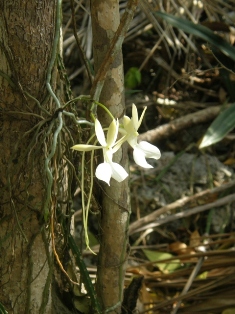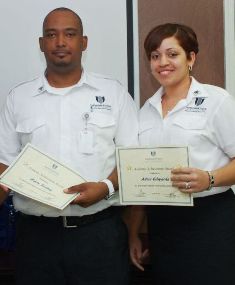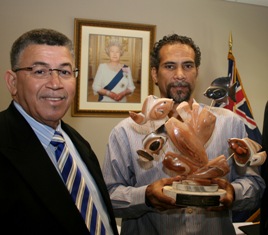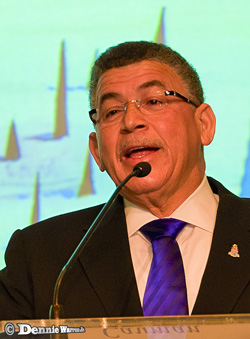Archive for May, 2011

Chinese techy firm leaves Maryland for Cayman
(CNS): Cogo Group, Inc. a leading gateway for global semiconductor companies to access the industrial and technology markets in China, has announced that its Board of Directors has unanimously approved the redomestication of the Company from the State of Maryland to the Cayman Islands. A wholly owned indirect subsidiary of the Company, Cogo Group Cayman, Inc. ("Cogo Cayman"), has filed a registration statement on Form F-4 relating to the redomestication transaction and future stockholder meeting. It is the Board’s belief that the redomestication will make Cogo’s shares more attractive to non-U.S. investors and ultimately broaden its shareholder base, the firm said in a statement.
The redomestication would allow the Company to dual-list its shares on the Hong Kong Stock Exchange but it does not mandate that the dual-listing will occur. Following a successful redomestication, if the Company chooses to initiate the dual-listing process for the Hong Kong Stock Exchange, it would take an estimated three to six months to complete.
"One of the main fiduciary responsibilities of Cogo’s Board of Directors is to maximize value for our shareholders,” Jeffrey Kang, CEO of Cogo, said. “We believe that by changing our domicile to the Cayman Islands, which will allow the flexibility to dual-list our shares on the Hong Kong Stock Exchange, if we choose to do so, will help broaden our shareholder base to non-U.S. investors. We expect to be able to achieve this result with no material tax changes and limited costs relative to the potential improvement in shareholder value and a broadened shareholder base."

Conservation hopes dashed
 (CNS): As fears grow over the negative impact disappearing habitat is having on the Cayman Islands’ unique flora and fauna, the minister with responsibility for the environment had little comfort for conservationists last week. Mark Scotland was unable to give a date when he will bring the National Conservation Law (NCL) to the Legislative Assembly when asked by CNS. Despite earlier assurances when he was first elected that the bill was a priority, the minister could not even say for certain if it would be brought before the end of this year. He said that government had taken on board the input during the latest public consultation period which ended last year and said that the bill might be tabled sometime in the coming year.
(CNS): As fears grow over the negative impact disappearing habitat is having on the Cayman Islands’ unique flora and fauna, the minister with responsibility for the environment had little comfort for conservationists last week. Mark Scotland was unable to give a date when he will bring the National Conservation Law (NCL) to the Legislative Assembly when asked by CNS. Despite earlier assurances when he was first elected that the bill was a priority, the minister could not even say for certain if it would be brought before the end of this year. He said that government had taken on board the input during the latest public consultation period which ended last year and said that the bill might be tabled sometime in the coming year.
Speaking at the National Climate Change workshop back in 2009, Scotland had said his ministry was working hard to get the National Conservation Bill back on track and was going into 2010 with a vigorous public outreach campaign.
“I give the undertaking today that we will make every effort to hear all parties and take on board every concern. However, we in Cayman need to understand that the time has come tomake sacrifices to protect our Islands for future generations,” he said some eighteen months ago, when he also stated that unless the integrity of Cayman’s natural resources was safeguarded, it would be the death-knell for the Islands.
“We simply must have comprehensive and updated environmental protection legislation,” Scotland had said in 2009 six months after taking up the ministerial post.
However, speaking at a press conference on Thursday held to demonstrate solidarity for the premier in the wake of a no confidence motion filed by the opposition leader, Scotland had little to say on the long awaited bill.
His colleague Rolston Anglin said that Cayman had done a “great job compared to many others”, when it came to protecting the environment, despite the fact that there is no legal protection whatsoever for any of the country’s land based flora and fauna, with the exception of the blue iguana.
He pointed to the Turtle Farm as an example of conservation work, as well as the programme in Little Cayman to protect groupers and said that the work of legislators over the years had resulted in marine life flourishing.
Anglin also stated that more recently he had begun to see green parrots in West Bay, which was something, he said, one never saw when he was young. However, the minister did not seem to recognise that the reason why he was seeing parrots in urban areas was because they are, experts say, being increasingly displaced from their normal wild habitat and foraging for food and nesting places in gardens as a result.
As the NCL continues to languish in political limbo, local experts point to the mounting crisis and the real danger that many local species are in. Indigenous snakes, butterflies, bats, lizards, orchids, silver thatch palms and all other trees, plants and flowers unique to these islands have nothing in law to protect them.
Mangroves in particular, which are not only important habitat when it comes to providing a nursery for reef fish and a home to a host of wildlife, but important in their own right as a protection against storm surge in hurricanes remain dangerously exposed to destruction. Although mangrove buffer is supposed to have some protection in the planning law, the recent removal of several hundred feet of ocean front mangroves by the developer of the Ritz Carlton demonstrates that the planning designation of buffer zone is inadequate.
As development continues the loss of habitat is one of the most pressing problems because the flora and fauna have increasingly less space in which to propagate.
Without the NCL there is nothing in law to formalize the environmental impact assessment process that could point to and warn of potential losses of natural resources, enabling developers to mitigate that impact. Given the recent announcements by government regarding an array of proposed infrastructure projects, without the law the dredging of the North Sound or the installation of an oil refinery could all happen without any compulsion for the developers to carry out an impact assessment.
In the last round of public consultation on the legislation representatives from the DoE emphasised the serious urgency of the law and asked the public to show its support for the legislation. Wider public opinion appears to be in favour of the legislation: a straw poll on CNS resulted in 72% of voters wanting to see the law passed as soon as possible.
However, despite public backing it appears that fears from some quarters of the community that the law would stifle unbridled development have had a greater influence on government.
Eye care at work
(LIONS): Taking care of your eyes at work should be a priority. The risks can vary depending on what type of work you are involved in. Considering the amount of hours spent on computers at work, it is not surprising that research shows a rise in visual problems. These problems can include fatigue, red eyes, eye strain, pain in and around the eyes, blurred vision, dry eyes, headaches, and occasional double vision. It is important to find out how you can protect your eyes. Having eye exams and some minor changes can help you achieve this.
Blinking- Computer users tend to not blink enough causing dry irritated eyes. Users should concentrate on blinkingmore often. Artificial tears may help also.
Air flow and low humidity- these factors tend to aggravate dry eyes so pay attention to air vents, etc.
Position is key- Your screen should be an arm’s length away and the center about 4 to 8 inches below your eyes.
Lighting and Reflections- Room lighting should be diffuse in order to decrease glare and reflections. Anti-reflection screens and anti-reflective coatings on the lenses of your glasses can help also.
Computer displays- LCD displays tend to be better than CRT displays, however adjusting the CRT refresh rate (flicker) can help.
Computer glasses- many computer usersneed a pair of glasses to help alleviate symptoms.
If your eye problems persist you should seek professional eye care.
Industrial or Chemical Work
This line of work can present many hazards to the eye. Serious eye injuries can result from inadequate eye protection. The nature of the injury varies widely. Possible injuries include corneal abrasions, chemical burns, foreign bodies in the eye, cataracts and retinal detachments. Depending on the severity, blindness can be a result. However, majority of these injuries are preventable.
Wear appropiate eye protection- Depending on the job, particular eye protection should be used. For example, welders should have a welding mask or safety goggles should be used when hammering or sanding.
Wear proper eye protection- It is important the eye protection glasses/goggles follow industry standards. These glasses are available with or without prescription.
Handle chemicals with care- Manufacturer instructions should be read and followed. Eye protection can also help prevent chemical splash injuries.
Sun Protection- Some jobs require long hours outdoors. This increases exposure to the UV rays which are harmful to the eyes. Hats and UV coated lenses are necessary for protection.
If any of these injuries occur please seek professional eye care immediately. In the case of chemical splashes, it is imperative to irrigate the eye immediately before seeking care.
This article is one of a series regarding eye health in order to mark the Lions white Cane Week

New immigration recruits take to the borders
 (CNS): Five new Immigration Department recruits have received their badges after completing an intensive six-month training programme to swell ranks and ease the pressure on existing staff as the work load continues to increase for what is already one of the country’s busiest government entities. Jesanna Mencia, Sheria Goff, Alice Edwards, Harry Forbes and Floyd Shaw will be working at the air and sea ports, where they can expect challenging assignments ahead, one of their bosses told them at the graduation ceremony. Deputy Governor Donovan Ebanks told the new recruits that they had been handed a lot of authority.
(CNS): Five new Immigration Department recruits have received their badges after completing an intensive six-month training programme to swell ranks and ease the pressure on existing staff as the work load continues to increase for what is already one of the country’s busiest government entities. Jesanna Mencia, Sheria Goff, Alice Edwards, Harry Forbes and Floyd Shaw will be working at the air and sea ports, where they can expect challenging assignments ahead, one of their bosses told them at the graduation ceremony. Deputy Governor Donovan Ebanks told the new recruits that they had been handed a lot of authority.
”Be cognizant of that at all time, and don’t abuse it. Guard your reputation and integrity,” he said. “Work hard and develop yourselves to the fullest extent and opportunities will present themselves.”
The five men and women have been working hard over the last six months in the class room as well as hands on work on the job and cross training with other agencies. The recruits have studied local laws as well as learned about human behaviour, geography, psychology and sociology to help them in their work. The training included lectures from both internal and external sources, such as attorney Angelyn Hernandez and Senior Immigration Officer Ezron Anderson.
Former Immigration Chief Franz Manderson, who is now Chief Officer in the Portfolio of Internal and External Affairs, said immigration officers should be enthusiastic, professional and committed. He advised the new recruits to educate themselves while staying abreast of current developments.
During the ceremony Officer Harry Forbes took the overall achievement award for outstanding performance in theory and practical application. He shared the top academic spot with Officer Alice Edwards.
DCIO Bruce Smith of Border Control encouraged the support of the new officers’ families “as there will be some difficult times and late assignments.” He added, “Customer service is very important. Represent the department well. You will not be able to please everyone, but do your best.”

Witnesses chase down robbers
(CNS): Police have confirmed that two men have been arrested and a firearm has been recovered following an attempted robbery at Blackbeard’s liquor store in Grand Harbour on Monday afternoon. The two armed, masked men entered the store around 3:15pm but the staff refused to open the till so they suspects ran off, only to be confronted by two members of the public outside the store. Police said that during the struggle with the suspects the witnesses managed to grab the shotgun. The would-be robbers then discharged pepper spray at the men before running off into Selkirk Drive, where they disappeared into bushes. The local men, however, gave chase and followed the suspects and detained them until the police arrived. Sources told CNS that the men used necessary force to keep hold of the suspects as they waited for officials.
An RCIPS spokesperson said the arrests were made some seven minutes after the initial call to the police and no shots were fired, and despite reports to the contrary, no one was injured in the incident.
Anyone who was in the area and saw the incident take place or the suspects running from the scene should contact George Town CID on 949-4222 or Crime Stoppers 800-8477 (TIPS).

Swiss propose tax on US accounts to retain secrecy
 (SwissInfo): Switzerland has proposed it impose a final tax at the source on money held by US citizens in Swiss banks, according to Finance Minister Eveline Widmer-Schlumpf. In an interview with the SonntagsZeitung, Widmer-Schlumpf said negotiations with the US for a tax at the source had not yet begun. But she said the imposition of a final tax could be a means of resolving differences between the US and Switzerland on issues of banking secrecy. Widmer-Schlumpf said such a tax would allow the names of account holders to be kept secret, while at the same time Switzerland would be responsible for returning tax revenues to authorities of the account holder’s US state of origin.
(SwissInfo): Switzerland has proposed it impose a final tax at the source on money held by US citizens in Swiss banks, according to Finance Minister Eveline Widmer-Schlumpf. In an interview with the SonntagsZeitung, Widmer-Schlumpf said negotiations with the US for a tax at the source had not yet begun. But she said the imposition of a final tax could be a means of resolving differences between the US and Switzerland on issues of banking secrecy. Widmer-Schlumpf said such a tax would allow the names of account holders to be kept secret, while at the same time Switzerland would be responsible for returning tax revenues to authorities of the account holder’s US state of origin.

Premier gives Will and Kate a piece of Cayman
 (CNS): Following the royal nuptials last Friday officials have now unveiled the Caymanite sculpture by Horacio Esteban which the country’s premier and his wife took to London as a gift for the royal couple last week. McKeeva Bush presented a truly Caymanian wedding gift representing the earth, sea and artistry of the Cayman Islands. The sculpture is an original piece by Esteban depicting an underwater scene of tropical reef fish and barrel sponges carved from Cayman’s unique stone – Caymanite.
(CNS): Following the royal nuptials last Friday officials have now unveiled the Caymanite sculpture by Horacio Esteban which the country’s premier and his wife took to London as a gift for the royal couple last week. McKeeva Bush presented a truly Caymanian wedding gift representing the earth, sea and artistry of the Cayman Islands. The sculpture is an original piece by Esteban depicting an underwater scene of tropical reef fish and barrel sponges carved from Cayman’s unique stone – Caymanite.
The inscription on the sculpture reads: “On the occasion of the marriage of HRH Prince William of Wales to Miss Catherine Middleton. Presented by the Premier of the Cayman Islands, W. McKeeva Bush, OBE, JP on behalf of the people of the Cayman Islands.”

Doctors warn diabetics to take eye tests
 (CNS): At the start of the Lions White Cane week local doctors are warning the public to ensure they have frequent eye examines especially those suffering from Diabetes Mellitus a wellknown systemic disease that affects many people. Expert say it can cause many eye problems, all of which can result in vision loss and sometimes blindness. People suffering both type 1 and type 2 diabetics are at risk of glaucoma, cataracts and diabetic retinopathy. Decreased vision usually occurs at the late stages of these eye diseases. There is no pain or any other symptom at the onset hence the necessity for diabetics to have annual eye exams by an eye care professional.
(CNS): At the start of the Lions White Cane week local doctors are warning the public to ensure they have frequent eye examines especially those suffering from Diabetes Mellitus a wellknown systemic disease that affects many people. Expert say it can cause many eye problems, all of which can result in vision loss and sometimes blindness. People suffering both type 1 and type 2 diabetics are at risk of glaucoma, cataracts and diabetic retinopathy. Decreased vision usually occurs at the late stages of these eye diseases. There is no pain or any other symptom at the onset hence the necessity for diabetics to have annual eye exams by an eye care professional.
Glaucoma occurs when fluid pressure builds up in the eye. The pressure causes gradual damage to the optic nerve which corresponds to gradual vision loss. Noticeable vision loss occurs later into the disease and is irreversible. There are treatments available for glaucoma and early diagnosis is the key to controlling the progression of the disease. Diabetics are twice as likely to suffer from glaucoma as those that do not have diabetes. The longer the time that someone has diabetes, the more common the occurrence and the risk also increases with age.
Cataracts arise when the lens of an eye changes, becoming cloudy or opaque. If a cataract leads to a great reduction in vision, surgery is recommended. Diabetics are very likely to develop cataracts and to get them earlier in life.
The retina is the part of the eye that works to convert the visual image into a signal the brain can interpret. Diabetic retinopathy develops when diabetes causes damage to the blood vessels on the retina. As the damage progresses, vision begins to decline. Many factors play a role in leading to diabetic retinopathy. The three main factors are blood sugar control, how long the person has had diabetes and family history. Keeping blood sugar levels controlled well either decreases the risk or helps the retinopathy to be controlled or mild. For severe forms, laser surgery is necessary to attempt to save vision.
Early diagnosis is essential for the best possible outcome and control of diabetic eye disease, say doctors.
Check out CNS health pages this week for more articles on eye care and health issues for adults and children.

Bush says legal changes will enhance fund business
 (CNS): The Cayman government is planning to amend legislation to create a new Mutual Fund Administrators (MFA) license category to attract small to medium or niche service companies, the premier has told an industry magazine. The Cayman Islands leader has given two interviews recently to industry magazines which have featured the Cayman Islands offshore sector and in particular the fund business in special reports. In an interview with AR magazine – a publication of Institutional Investor & Hedge Fund Intelligence, McKeeva Bush said the change was part of the goal to develop greater substance in the area of mutual fund administration. (Photo Dennie Warren Jr)
(CNS): The Cayman government is planning to amend legislation to create a new Mutual Fund Administrators (MFA) license category to attract small to medium or niche service companies, the premier has told an industry magazine. The Cayman Islands leader has given two interviews recently to industry magazines which have featured the Cayman Islands offshore sector and in particular the fund business in special reports. In an interview with AR magazine – a publication of Institutional Investor & Hedge Fund Intelligence, McKeeva Bush said the change was part of the goal to develop greater substance in the area of mutual fund administration. (Photo Dennie Warren Jr)
“Currently, many of our licensees conduct only one component of mutual fund business, for example, registration and transfer agency services,” he told the magazine. “However, there is no provision in the Mutual Funds Law to allow an applicant to apply for a Mutual Fund Administrators license in order to conduct partial business. The new MFA License will cater to those entities looking to provide registrar and transfer agency services in the Islands. It will require a nominal net worth, professional indemnity insurance, and an obligation to have a principal office on island.”
Speaking with Hedge Fund Review for another Cayman feature, the premier said he was confident that the Hedge Fund sector would continue to be a “significant driver of growth and specialization.” He said it had helped solidify Cayman’s position in the global institutional investment community over the past 15 years.
“While the government does not break down revenue it receives from the financial services industry by sector, we do know that direct revenue from the financial services industry to government revenues is just below 40%,” he said. “We have a strong legal and regulatory framework for hedge funds that the global markets have recognized.”
With the largest proportion of hedge fund domiciles in the world, Bush said, “We see significant opportunity for the Cayman Islands to fully assert our position in the global institutional investment sector by building on success in the hedge fund industry to include reinsurance, investment management and sovereign wealth funds, among other related products and services.”
The magazines also points to the recent legal changes already made to the Company’s Law and the hopes that this will streamline activities in the financial sector. The intent is to increase the attractiveness of the Cayman Islands as a domicile for corporate entities and maintain its competitive edge, the magazine reports. Bush said he believes the amendments will create “new opportunities for growth in this key sector of our economy.”
Meanwhile, Dax Basdeo, chief officer, in the Ministry of Finance, said the amendments were critical in order to bring Cayman into line with or ahead of other jurisdictions.
The two reports feature a cross section of industry and government representatives talking up the industry in the wake of sustained attacks from the onshore world as well as concerns about the impact of regulatory changes such as EU Alternative Investment Fund Managers Directive approved last November. Andrew Morehouse, a Cayman Islands-based partner at law firm Ogier is quoted as saying: “We are happy thatthe directive doesn’t contain any nuclear material for Cayman.”
Meanwhile, Anthony Travers, the former chair of Cayman Finance, said, “This is not peace time,” as he believes “the forces of darkness are gathering” in problematic ways and there were very, very real threats from a number of different sources, all of which one can track back to the short fall in onshore tax revenues.

Customs finally offers card payment service
(CNS): Officials from the Cayman Islands Customs Department said the recent introduction of card payment services was part of its goal to streamline its operations and enhance its customer service. The department said that following the success of its introduction at the airport customers can now use all major credit or debit cards – with the exception of American Express – at all of its outlets for their imported goods. The move is a long time in coming and in the past customers were forced to pay cash or cheque. This also resulted in the department having to chase bad payments. With Card payments administrative officials said they hoped it would reduce the frequency of returned cheques.
“We aim to enhance customer service by streamlining the process while at the same time removing inefficiencies,” the Collector of Customs, Carlon Powery said. “I am delighted that we have made this improvement at all our collection units.”
Cards will now be accepted at the ocean freight collections unit on Portland Drive, located behind the Port Authority’s billing offices, which is primarily for processing imports via ocean and the Customs Headquarters, located next to Cayman Airways Cargo on Owen Roberts Drive, which caters primarily to clearing goods arriving by air. The dual locations allow importers to complete their customs clearance and pay import duties where their goods are to be collected.
Customs Finance Manager Mitzi Watson-Jervis explained that the services received at both facilities are non-exclusive so imports via air or ocean can be processed and paid for at both facilities.
Watson-Jervis said she was encouraged by the positive feedback the department has received since the introduction of the acceptance of card payments at the airport terminal and noted that it was inevitable that the option be expanded throughout the department.